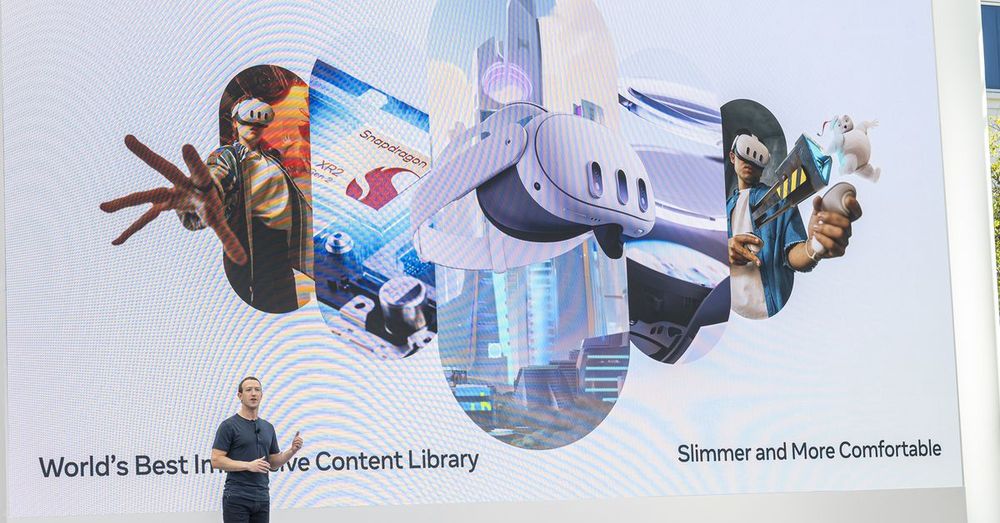Meta aims to become the Microsoft of headsets
Meta licenses Horizon OS to Lenovo, Asus for VR headsets, aims to rival Microsoft's PC legacy by fostering an open ecosystem.

Under the leadership of Mark Zuckerberg, Meta is taking a bold step towards shaping the future of virtual reality by licensing its Horizon OS to other hardware makers, starting with Lenovo and Asus. This is part of an effort to make Meta for VR headsets what Microsoft was for PCs in the early days of the personal computer revolution. By also partnering with Xbox to release a gaming-focused version of the Quest headset, Meta is signaling its commitment to creating a broad, open ecosystem that supports a variety of uses, from gaming to productivity and entertainment. The introduction of Horizon OS to a wider array of devices is intended not only to expand the reach of Meta's virtual reality platform but also to foster innovation through the collaboration with other tech giants like Google, by inviting them to bring the Play Store onto the Horizon OS platform.
This strategy mirrors the early days of the PC market, where Microsoft's licensing of Windows to a variety of hardware manufacturers led to a dominant, widely accessible computing platform. By adopting a similar approach with Horizon OS, Meta is aiming to create an open ecosystem for virtual and augmented reality that encourages a rich variety of applications and devices. The inclusion of the Horizon social network within this ecosystem indicates Meta's plan to monetize this venture through ads and commerce, potentially transforming how users interact with social media in a 3D virtual environment.
Meta's initiative to license Horizon OS and collaborate with other companies marks a pivotal moment in the tech industry's pursuit of a unified, open ecosystem for virtual reality. By fostering partnerships and encouraging the development of alternative app stores, Meta is positioning itself at the forefront of the next computing revolution. This approach not only challenges the current leaders in the space, like Apple's Vision Pro, but also hearkens back to the successful strategies of tech giants like Microsoft, aiming to replicate their success within the realm of virtual and augmented reality.
 Why Meta is looking to the fediverse as the future for social media
Why Meta is looking to the fediverse as the future for social media Microsoft’s Surface and Xbox hardware revenues take a big hit in Q3
Microsoft’s Surface and Xbox hardware revenues take a big hit in Q3 Augment, a competitor of GitHub Copilot and backed by Eric Schmidt, emerges from stealth mode with a launch of $252 million
Augment, a competitor of GitHub Copilot and backed by Eric Schmidt, emerges from stealth mode with a launch of $252 million IBM advances further into hybrid cloud management with its $6.4 billion acquisition of HashiCorp
IBM advances further into hybrid cloud management with its $6.4 billion acquisition of HashiCorp Perplexity is raising over $250 million at a valuation of between $2.5 billion and $3 billion for its AI search platform, according to sources.
Perplexity is raising over $250 million at a valuation of between $2.5 billion and $3 billion for its AI search platform, according to sources. Apple announces May 7 event for new iPads
Apple announces May 7 event for new iPads Gurman: iOS 18 AI features to be powered by entirely On-Device LLM, offering privacy and speed benefits
Gurman: iOS 18 AI features to be powered by entirely On-Device LLM, offering privacy and speed benefits Meta aims to become the Microsoft of headsets
Meta aims to become the Microsoft of headsets Tinder introduces a 'Share My Date' feature allowing users to share their date plans with interested friends
Tinder introduces a 'Share My Date' feature allowing users to share their date plans with interested friends This is Tesla's effective solution for the recalled Cybertruck accelerator pedals
This is Tesla's effective solution for the recalled Cybertruck accelerator pedals